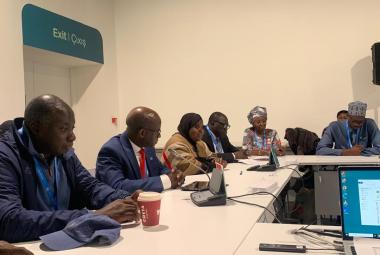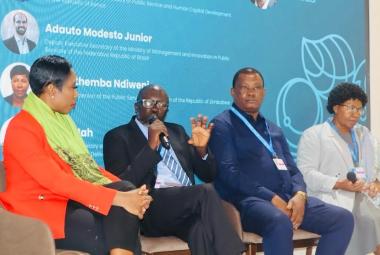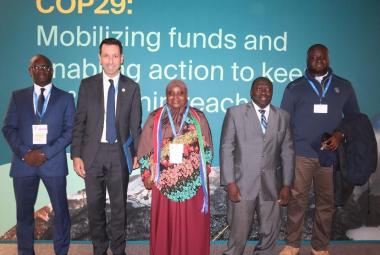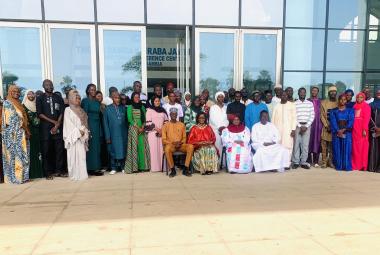At the UNCDF pavilion at COP29, Hon. Minister of Environment, Climate Change and Natural Resources, Rohey John-Manjang, made her debut panel appearance on “Public Goods and Private Initiative: How Local Infrastructure Investments Enable Local Economies to Rise to the Climate Challenge.” She shared The Gambia’s progress and experiences with the LoCAL Finance Initiative (LFI), noting its success under the Job, Skills, and Finance Program in fostering local employment, enhancing financial literacy, and mitigating rural-urban migration. Hon. John-Manjang emphasized the government’s promotion of Public-Private Partnership (PPP) approaches, which integrate innovative solutions and government participation to reduce investment risks. “The Government of The Gambia is now encouraging Public-Private Partnership approaches in handling initiatives on innovative solutions and government involvement to reduce risk for the investors,” she stated.
It is believed that the catalytic role of the private sector in stimulating economic growth and reducing poverty has already been proven. Despite consensus on this critical role, the basic legal and financial mechanisms necessary to develop the private sector still contain many shortcomings in many developing countries, thus slowing the growth of that sector at the local and national levels. LFI paves the way for the investment of new capital and relies on proven methods for funding local development. The specificity of this tool is the introduction and application of a large range of approaches and risk-reduction instruments, strengthening project management methods as well as existing risk-reduction instruments or credit-enhancement options.
Addressing a question on the scenario prior to UNCDF’s involvement, Hon. John-Manjang noted that the traditional top-down approach had been replaced with a more inclusive bottom-up method, empowering beneficiaries to make decisions about their needs and implementation strategies. This shift has strengthened community ownership and relevance in development initiatives. She also stressed the importance of transparent and accountable fund utilization, emphasizing that climate adaptation is no longer optional but a necessity. “Adaptation is no more a choice but a must to combat climate change,” she affirmed. Food security and managing natural resources are important domains in which UNCDF is involved. Strong with decades of experience in local food security, UNCDF considers the urgent need to include the private sector in its approach and to develop new funding mechanisms for food production and trade.







